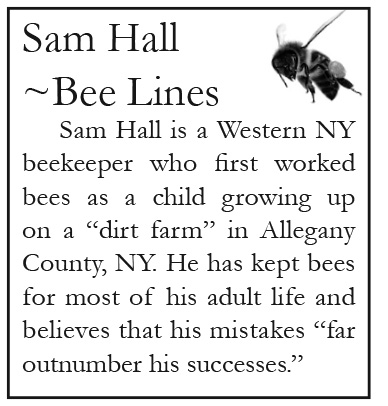Double Nucs, Bearding, and Bee Yard Tranquility
Setting up Double Nucs
- By Sam Hall –
Over the course of the summer, I had created several nucs: some in four frame and some in five frame nuc boxes. A nuc with bees is a mini-colony, and if you do not pay attention it can expand rapidly to the point where the bees will send the old queen and about half the nuc colony away, in the form of a swarm. These nucs are very useful in case you need a queen quickly to replace one in a full sized colony or, as I have done with some this summer, to take a frame of sealed brood from the nuc and use it to augment the population of a colony that you deem needs it.
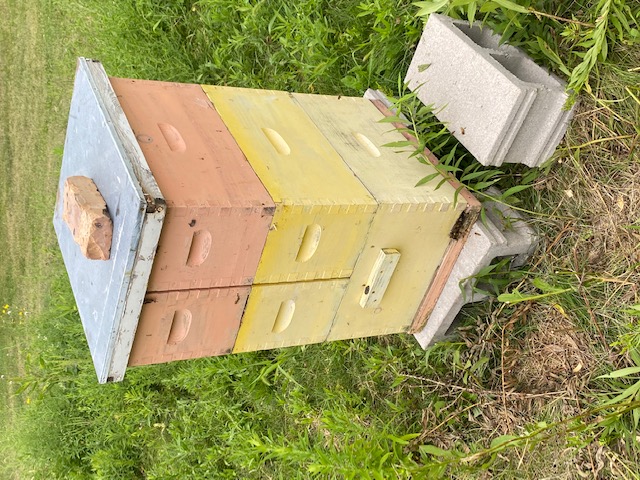
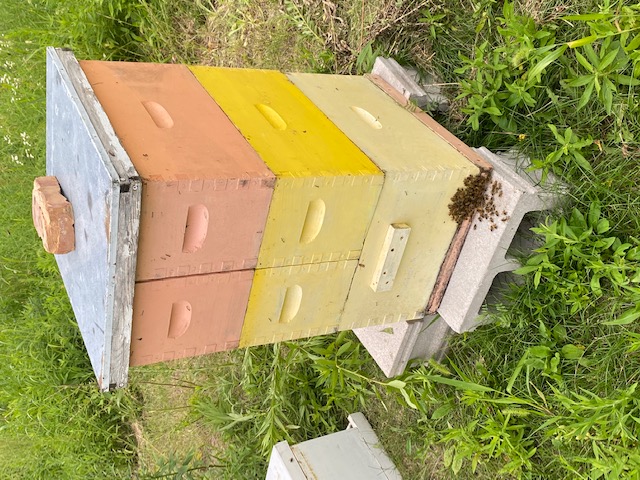
Top: (Left) The easterly facing side of the double nuc box; (Right) The westerly facing side.
Another use of nucs is to stock a double nuc box. A double nuc box is side-by-side four frame nucs, one entrance facing one direction and the other facing the opposite direction. Each side has a minimum of two such four frame boxes, one on top of the other. The object of a double nuc box is that the two colonies can share heat in the winter, thereby enhancing the chances of winter survival. My first years of using the double nuc box were disappointing; the colony on the southerly side survived and the colony on the northerly side did not. Because of this I stopped using it.
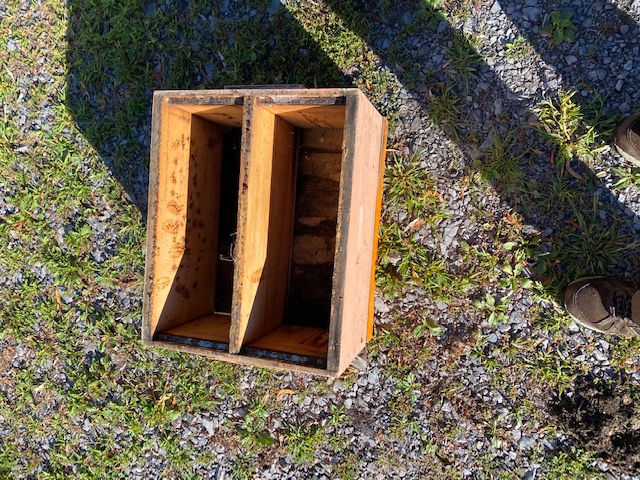
This year however, I’m trying again. I have moved the box to a more protected area and have orientated it more easterly and westerly. I am still concerned about the colony that is facing westerly, so to help I’m going to put three or four bales of straw a few feet from the entrance, so it will not bear directly the winter wind from the West. I’ll let you know in the spring how it went. I put the two colonies of bees into the box recently and the colonies seem to have adapted well.
Bearding and other bee yard challenges
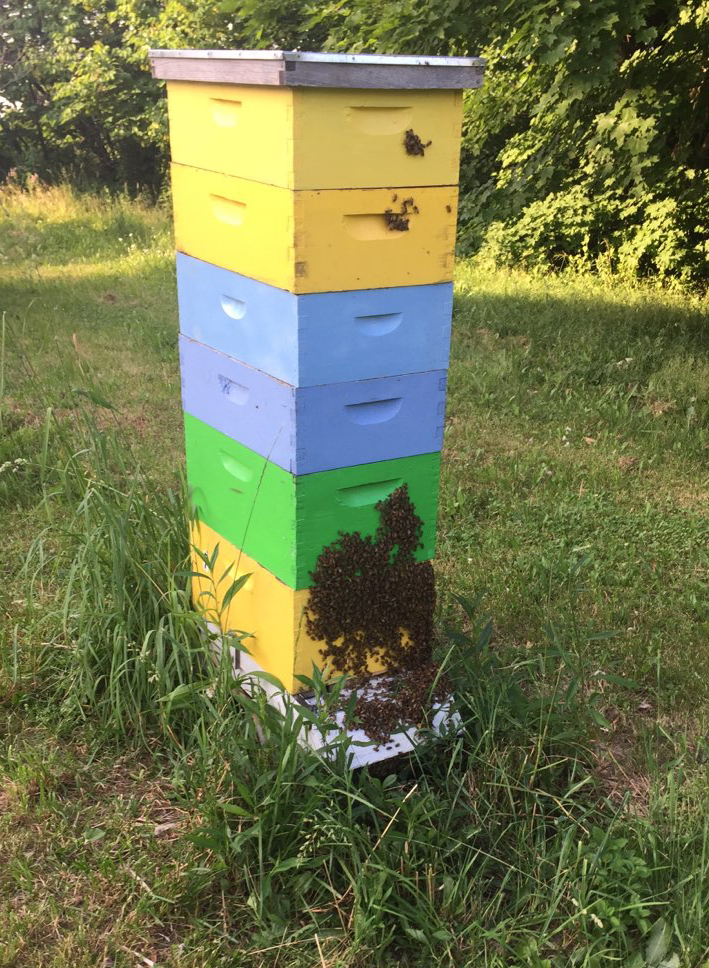
The late summer hot weather has again caused intense bearding in spite of having removed the entrance reducers and propped open the inner covers. I have hives bearding that not only have I done the foregoing but have added empty medium supers on top, trying to increase the area of empty space and hopefully circulation. I have tried some with drawn comb and some with undrawn and it doesn’t seem to make a difference. The old adage keeps popping into my head “bearding bees are not working bees.” If anyone has any other suggestions, I would be happy to hear them.
Recently, I did one of the worst things a beekeeper can do. I increased the possibility of robbing for a vulnerable colony. There is a location in my yard where any colony I have ever had there seems to struggle, and I never seem to get the message. It looks like a perfect spot at the top of a small rise that runs north and south, so I placed the colony facing east. I have another colony to the south about 75 to 100 feet away. The southerly colony has always done well and thrives, not so it’s northerly neighbor. The only noticeable difference to me is that the northerly location has some poison ivy. This should not make any difference.
I have been pulling honey for extraction and my operation is small enough that I will pull individual frames of sealed honey and leave those that are not ready rather than wait until the whole super is full of sealed honey. It is easier on my back. I took two frames of honey out of this colony on August 12th. I replaced the frames with “wet” frames from the extractor. Wet frames are frames that have been extracted but there is still a bit of honey on them. Eight days later, on August 20th, the colony was being robbed out. By the time I saw it, it was too late to save the colony. I will cover robbing another time but in many of the cases such as mine it is generated by an unthinking act of the beekeeper. I believe the wet supers attracted bees from other colonies and they overcame the resident population. At some point during a robbing the resident bees become disheartened and stand down letting the robbers take over.
Reflections on finding tranquility in the bee yard during troubling times
In this time of national stress due to many reasons, I find comfort in my bees as never before. As other venues have closed, three of my non-beekeeping friends have been coming to the yard to walk and observe. They also are finding a peacefulness and tranquility that they cannot find elsewhere. Hopefully it will continue for them and me.
